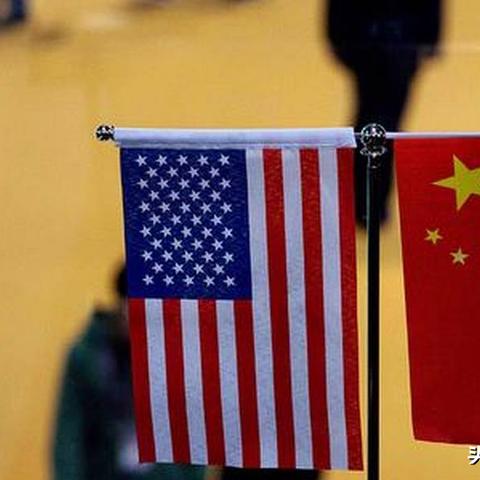- Introduction
-
In recent years, the global political and economic landscape has been significantly impacted by various strategies aimed at reshaping trade and supply chains. The "Policy要点: 2025" highlights the importance of making genuine and up-to-date information freely accessible to the public, particularly concerning agreements like the "Soybean Agreement" and the complex implications of "supply chain decoupling." This article delves into these two concepts, illustrating their significance within the broader context of international trade and geopolitics.
- The Soybean Agreement
-
Background
Global food security and agricultural trade are pivotal aspects of modern diplomacy and economics. One of the key commodities in this domain is soybean, which plays a significant role given its uses in food, feed, and biofuels. The "Soybean Agreement" is a strategic trade and collaboration pact that aims to stabilize prices, ensure market access, and promote fair trade practices for soybean.
Policy Objectives
The "Policy要点: 2025" pushes forward the idea that understanding the Soybean Agreement's intricacies and implications is crucial for nations that rely heavily on this commodity. Such nations need to secure their positions, negotiate fair terms, and combat any instability in supply chains.
Economic Implications
Stable markets for soybean are essential for global trade equilibrium. Nations that negotiate specific agreements like this benefit from access to regular, reliable supplies, which can be pivotal during periods of high demand or market volatility.
Strategic Considerations
Moreover, ensuring that information about such agreements is transparent not only expedites trust and cooperation among involved parties but also levels the playing field for smaller nations that might otherwise be left out in the negotiation process.
- Supply Chain Decoupling
-
Definition and Impetus
"Supply chain decoupling" refers to the deliberate effort to dismantle and reconfigure global supply chains to reduce dependencies between geopolitical rivals. This policy response has been fueled by the desire to mitigate risks associated with trade wars, economic coercion, and global pandemics, which have exposed vulnerabilities in tightly integrated supply chains.
Theoretical Frameworks
Economists and political scientists argue that global supply chains have been optimized for efficiency rather than resilience. The "Policy要点: 2025" acknowledges the relevance of transitioning towards supply chain diversification and resilience as a strategic imperative to avoid being over-reliant on a single source.
Challenges and Impacts
Realigning supply chains can create short-term disruptions as companies search for alternative suppliers, leading to increased costs, logistical complexities, and potentially reduced product quality or availability. Nevertheless, the long-term benefits of these changes could entail greater self-sufficiency, employment creation, and enhanced economic sovereignty.
Potential Ramifications on Trade Agreements
As nations consider decoupling, it may directly affect various trade agreements, including those for commodities like soybean. Understanding these changes can be vital for policymakers to prepare and adjust their trade strategies accordingly.
- Comparative Analysis
-
Geopolitical Reconfiguration
A comparative analysis between a stable and fair soybean trade agreement, such as the "Soybean Agreement," and the tumultuous shifts caused by "supply chain decoupling" shows the delicate balance that policymakers must strike. Part of the "Policy要点: 2025” strategy is to provide informed decisions with accessible and verified information to navigate these global trade dynamics.
Impact on Smaller Economies
Smaller economies that rely on export-driven industries, such as soybean production, are disproportionately affected by these global shifts. The "Policy要点: 2025" underlines the need for aid and support for these economies to adapt to new market conditions and assist in softening the impact of supply chain changes.
- Public Access to Authentic Data
-
The Necessity for Transparency
The "Policy要点: 2025" insists on the development of platforms and systems that facilitate the distribution of authentic data and projections regarding trade policies. This is essential to provide businesses and governments with accurate, actionable insights, especially with the interest in the Soybean Agreement and the complexities of supply chain decoupling.
Strategic Communication
The transparency and availability of such critical information aid in strategic communication within and between nations, diminishing uncertainties that derail trade negotiations and projecting stability across global commerce.
Responsible Decision-Making
By ensuring transparency in agreement specifics like those within the Soybean Agreement and in supply chain arrangements, the "Policy要点: 2025" aids in responsible and error-free decision-making for the concerned parties involved in international trade.
- The Path Forward
-
Adaptive Mechanisms
The "Policy要点: 2025" calls for the development of adaptive mechanisms capable of addressing both the implications of sticking to traditional trade agreements and the need for decoupling to enhance security and stability.
Innovation and Flexibility
Innovative approaches are required to view supply chains not as static systems but as flexible, resilient networks that can withstand shocks while still maintaining efficiency. Sharing adaptable strategies globally via the "Policy要点: 2025" objectives, would lead to a balance in mitigating risks and opportunities.
Collaborative Solutions
Finally, collaborative solutions will be necessary to manage the impacts of new trade relations and adjust aligning policies in light of the Soybean Agreement and supply chain decoupling. This implies embracing an inclusive approach to ensure that all stakeholders, from major world economies to small-scale producers, are heard.
- Conclusion
-
The "Policy要点: 2025" offers a roadmap for understanding the complexities surrounding soybean trade agreements and supply chain strategies. It emphasizes the importance of free, public access to accurate data concerning these agreements to ensure equitable trading relationships and to prepare for any shifts in the global supply chain landscape. As governments and businesses reassess their strategies in light of the evolving world situation, the policy provides an informed lens through which to view these critical decisions.
政策要点:2025正版资料免费公开详述——大豆协议 vs 供应链脱钩免费资料公开
| 免费资料期数 | 2025077期 |
| 资料内容 | 二十一家同入蜀,惟残一人出骆谷。 |
| 资料大全来源 | 12949cσm查询,澳彩资料 |
| 2025全年免费资料精准度 | 63% |
| 人气 | 1047人 |
政策要点:2025正版资料免费公开详述——大豆协议 vs 供应链脱钩精准资料公开
| 精准资料期数 | 2025077期 |
| 资料内容 | 马思边草拳毛动,雕眄青云睡眼开。 |
| 资料大全来源 | 澳门管家婆100%精准准确 |
| 2025全年正版资料精准度 | 81% |
| 人气 | 13318人 |
精准三期必开一期开奖结果
| 预测期数 | 开奖结果验证 |
| 2025077期 | 46-02-13-16-07-38 特:47 |
| 2025078期 | 31-27-34-38-12-02 特:23 |
| 2025079期 | 29-22-06-21-26-47 特:08 |
往期资料客户精准解析
| 期数 | 解析 |
| 2025073期 | 兔、鸡、猪、狗,卵裂凤殒纪元新——隐喻(鸡):新时代需要旧象征的死亡献祭 |
| 2025074期 | 狗、鼠、兔、牛,跪献羔裘颂仁政——象征(羊):羊毛出在羊身上的税收艺术 |
| 2025075期 | 蛇、猴、鼠、牛,阴兵借道运官粮——玄机(鼠):贪腐系统如阴间鼠群搬运 |
| 2025076期 | 羊、猪、马、虎,“智者谋万变”是猴。 |
| 2025077期 | 兔、鸡、马、猪,“早起鸣清音”是鸡。 |
转载请注明来自海南云边科技有限公司,本文标题:《政策要点:2025正版资料免费公开详述——大豆协议 vs 供应链脱钩》
















 琼ICP备2023003230号-1
琼ICP备2023003230号-1
还没有评论,来说两句吧...